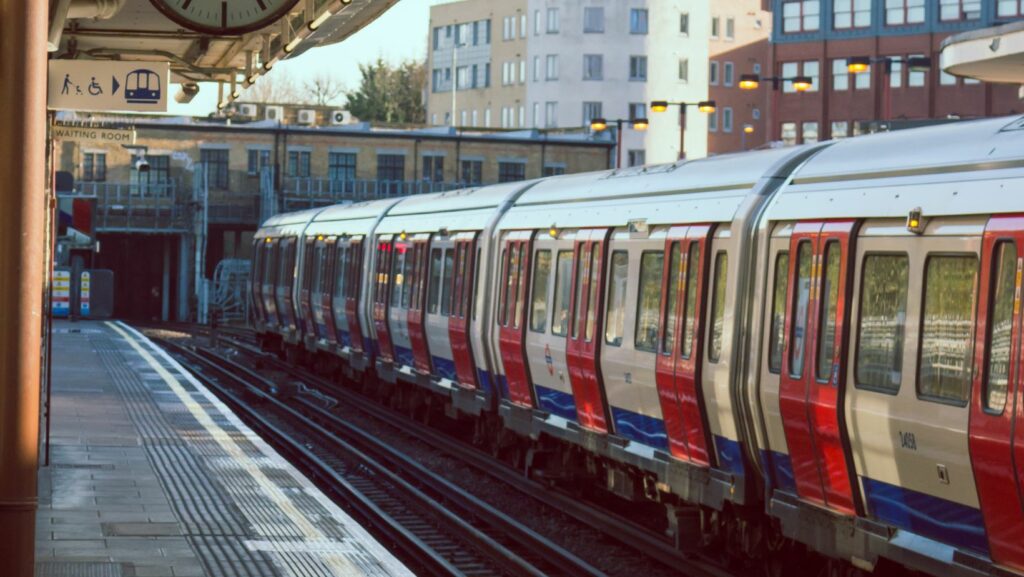Train Authorities’ COVID-19 Safety Protocols
Table of Contents
ToggleTrain authorities have implemented comprehensive safety protocols to ensure traveler’s safety amidst the ongoing pandemic. These protocols include mandatory face masks, social distancing enforcement, and frequent sanitization of trains, stations and passengers.
Moreover, train authorities are encouraging online ticket booking to avoid long queues. Passengers’ temperature is checked before boarding. Train coaches are rearranged with marked seating arrangements to ensure social distancing norms are maintained.
Furthermore, all pantry cars provide contactless meal options to minimize direct contact between passengers and railway staff. These measures help prevent virus transmission and contain the spread of the disease, providing a safe travel experience for passengers.
Interestingly, according to a report by IANS news agency in India in August 2020, no confirmed cases of COVID-19 were reported on trains since July 1st when services resumed after being suspended during lockdowns, due to strict adherence to safety protocols by train authorities.
Keeping distance on trains isn’t just about personal space, it’s about personal safety.

Is it Safe to Travel by Train During Covid
Travelling by train during COVID-19 requires cautiousness, and certain measures must be taken to guarantee safety. Here are some essential tips to ensure hassle-free train travel amidst the pandemic:
- Wear a face mask throughout the journey
- Use hand sanitizers frequently
- Avoid eating food inside the train compartment
- Maintain social distancing while boarding and deboarding the train
- Carry your beddings and water bottles
- Use digital platforms for booking tickets
It is important to note that official guidelines can vary according to different railway stations. Do not forget to carry necessary identification proofs, such as ID card or passport, while traveling.
According to recent reports by NBC News, Amtrak will start using electrostatic spray technology that can quickly and efficiently sterilize trains before passengers board them.
Why take the risk of traveling by train during a pandemic when you can just stay home and watch a travel documentary?
Alternative Options for Safe Travel during COVID-19
Amidst COVID-19, there are other alternatives to traveling besides trains that can ensure safety and well-being.
- Consider driving in a private car with family members or close friends only.
- If flying is necessary, opt for airlines that enforce strict health and safety guidelines.
- Take advantage of new travel opportunities such as remote work while on vacation.
- Have a staycation and explore your local community instead of going far away from home.
It’s important to understand the different options available during these unprecedented times. Remember to take appropriate measures to prioritize your health and ensure safety.
In addition, digital nomads have become more common due to the pandemic. It’s now possible to work remotely while traveling domestically or internationally.
According to AARP, “airplanes’ high-efficiency particulate air (HEPA) filters now used on most major airlines” can help prevent the spread of diseases like COVID-19.
Train travel during COVID-19:
- Pros – lower risk of motion sickness;
- Cons – higher risk of getting caught in an impromptu game of musical seats with social distancing.

Conclusion: Pros and Cons of Train Travel during COVID-19
Traveling by train during COVID-19 has its share of advantages and disadvantages, which are worth examining before embarking on a journey.
Pros:
- Cost-effective alternative to flights
- Avoids the hassle of security checks and long waiting times at airports
- Opportunity for sightseeing from the comfort of your seat
- Trains have implemented strict cleaning protocols for added safety
Cons:
- Crowded trains may increase the risk of infection spread
- Social distancing might be challenging on trains with limited space
- Travel time may be longer than other modes of transportation.
- Delays and cancellations may occur due to changes in government regulations or local restrictions on travel.
Covering all aspects, it is essential to check the guidelines issued by the government and researching safety measures beforehand.
It is advisable to carry essential items such as hand sanitizer, disinfectant wipes, masks, gloves, and maintain proper hygiene while traveling by train. It’s better to pack your food requirements since there may be limited onboard services available.











